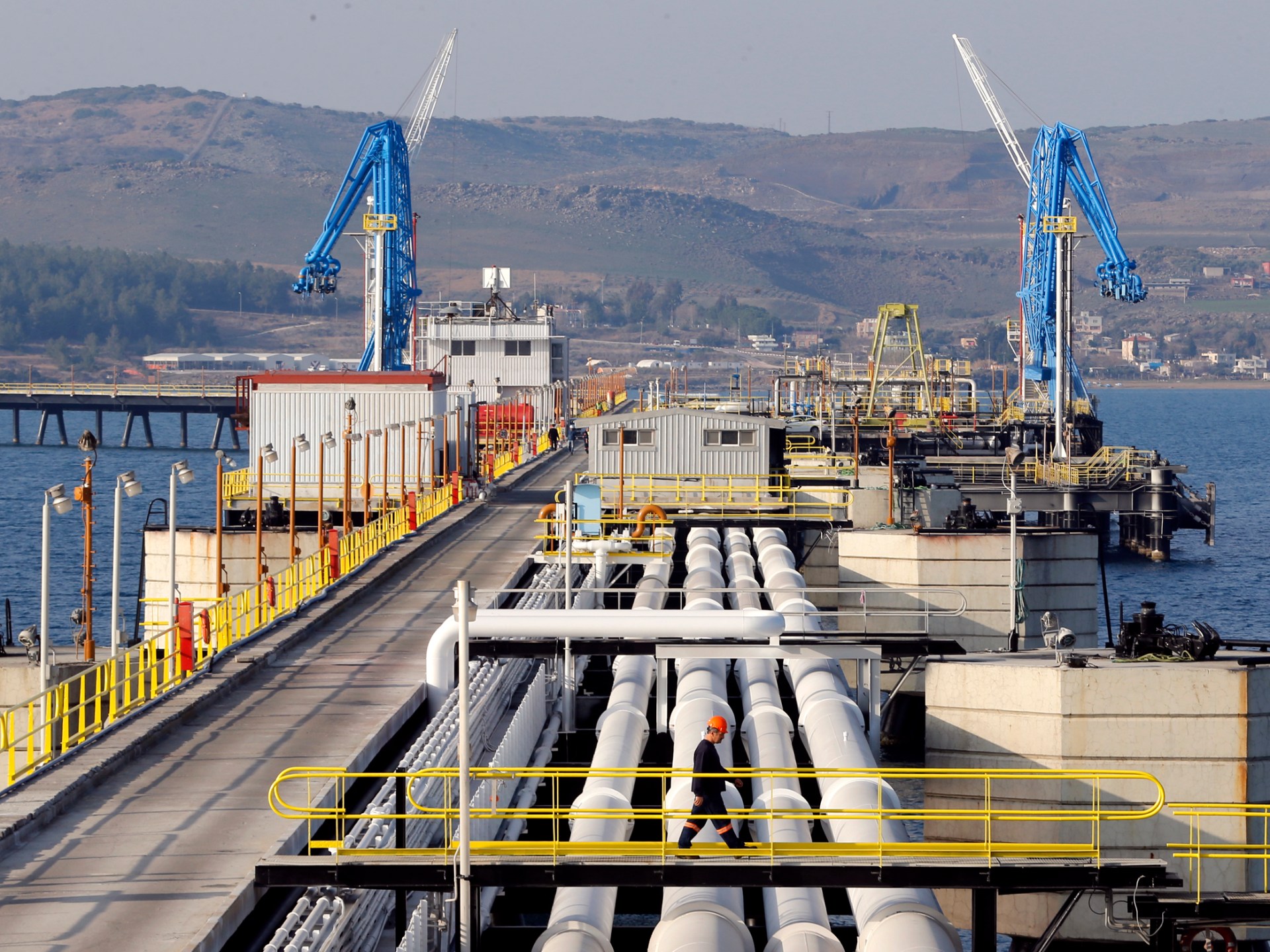The Turkish port of Ceyhan, where Iraqi oil flows reach it through pipelines (Reuters)
A year after the halt of the Iraq-Turkey oil pipeline, the vital channel responsible for approximately 0.5% of global oil supplies, the path towards its resumption remains mired in legal and financial complications. The flow of oil through the pipeline stopped after the Paris-based International Chamber of Commerce ruled that Turkey violated the terms of the 1973 agreement by facilitating oil exports from the Iraqi Kurdistan region without the approval of the Iraqi federal government in Baghdad.
This impasse, attributed to legal disputes and financial hurdles, has left stakeholders in a state of uncertainty, with significant economic repercussions for Iraqi entities and the KRG.
Financial losses
After facilitating the flow of about 450,000 barrels per day of crude oil, the closure of the northern oil export route through Turkey caused major economic losses. According to the Iraqi Oil Ministry, the stoppage resulted in a loss estimated at between 11 and 12 billion dollars. While the Kurdistan Oil Industry Union stressed the responsibility of foreign companies in the Kurdistan Regional Government, stressing their failure to submit amended contracts as a pivotal factor in delaying the resumption of crude oil exports.
The Kirkuk-Ceyhan pipeline, which has been offline since March 2023 after Ankara suspended flows in response to an arbitration ruling issued by the International Chamber of Commerce, remains a pivotal point of contention. The International Criminal Court has mandated Turkey to pay compensation to Baghdad amounting to $1.5 billion due to unauthorized exports by the Kurdistan Regional Government between 2014 and 2018.
The International Criminal Court ordered Turkey to pay compensation to Baghdad amounting to $1.5 billion (Reuters)
Regulatory and legal obstacles
The Iraqi Ministry of Oil says that foreign companies operating in the Kurdistan region of Iraq bear part of the responsibility for the delay in resuming crude exports from the region because they did not submit their contracts to the government for review, which is a basic condition for resuming operations. The ministry stated in a statement that foreign companies, in addition to the Iraqi Kurdish authorities, have not yet submitted their contracts to the Federal Ministry of Oil for review and issuance of new contracts that comply with the constitution and the law.
The government said in response to a statement issued last Saturday by the Kurdistan Oil Industry Association (APICOR) that it was seeking to review those contracts after a court ruled that the agreements signed with the Kurdistan Regional Government were invalid.
Iraq is committed to the minimum payments agreed upon with Turkey as long as the pipeline is technically operational, which Wood Mackenzie Consulting estimated at about $25 million per month.
APICOR cited similar estimates, saying that Iraq must pay $800,000 in daily fines.
On the other hand, the Turkish Daily Sabah newspaper quoted the Turkish Ministry of Energy as saying that the International Criminal Court recognized most of Ankara's demands. The Ministry of Energy said that the Chamber ordered Iraq to compensate Turkey for several violations related to the case.
Losses and compensation
According to Daily Sabah, despite the treaty that obliges Iraq to make minimum payments to Turkey as long as the pipeline remains technically operational, which is estimated at about $25 million per month, broader economic factors overshadow immediate expectations for the resumption of flows. With Iraq's commitment to oil export cuts imposed by OPEC Plus, and prioritizing market stability over regional flows, the possibility of restoring northern exports is still far-fetched, according to the newspaper.
Reactions
Abicor criticized the Iraqi government that did not “take the required measures” to restart the pipeline, adding that “there was no real progress” in restarting the line despite meetings held in Baghdad in January between representatives of the Iraqi government, the Kurdistan Regional Government and international oil companies.
The statement added that the current commercial conditions and economic model must be “maintained” for member companies, calling for guarantees regarding the payment of past and future oil export dues.
APICOR criticized the Iraqi government that did not “take the required measures” to restart the pipeline (Reuters)
Commercial realities and industry concerns
International oil companies, the primary stakeholder in any potential restart, are grappling with financial losses and contractual uncertainties. With more than $1 billion in late payments and collective revenue losses exceeding $1.5 billion since the shutdown, these companies are calling for compensation in line with contractual obligations. However, formal proposals or agreements from Iraqi or KRG officials remain elusive, prolonging uncertainty within the industry.
A US State Department spokesman told Reuters that Washington "encourages all parties to reach an agreement to resume the flow of oil through the pipeline between Iraq and Turkey as soon as possible."
The spokesman said, "The resumption of oil exports through the pipeline between Iraq and Turkey will benefit all parties."
Source: Al Jazeera + agencies

